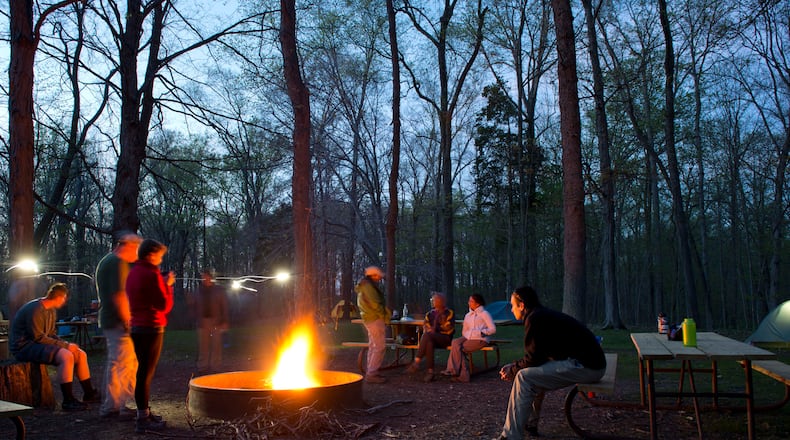WHAT YOU NEED
While some people enjoy camping with just the necessities, others want most of the comforts they are accustomed to at home. The amount of food and personal items you will need to bring will vary depending on the length of your camping stay. Be sure to bring items that protect you from the elements and keep you hydrated and nourished. For an extensive list of camping items check out this page.
>> 12 top hiking trails in and around Dayton
Once you have your gear in order, you'll want to be sure your reservation is booked. MetroParks offers 23 campsites in some of your favorite MetroParks. Frontcountry campsites are easily accessible by car and hike-in backcountry sites are available for more adventurous campers. Reservations can easily be made online at metroparks.org/easy or by calling 937-275-PARK.
>> 7 things to know about the rare 2017 solar eclipse
WHAT YOU’LL SEE
The Perseids Meteor Shower: The most popular meteor shower of the year, the Perseids occurs when the Earth passes through the path of the comet Swift-Tuttle. Peaking from August 12 to 13, stargazers can view up to 80 meteors an hour in perfect conditions.
Due to this year’s bright moon and the Miami Valley’s light pollution, people across southwestern Ohio can expect to see one meteor every two to five minutes, according to the Boonshoft Museum of Discovery’s astronomy educator, Joe Childers.
>> Your guide on where to go paddling in Dayton
“In Dayton, the best time to view the Perseids would be between 4 and 5 a.m., before astronomical twilight,” said Childers.
Darker skies: Light pollution, an excess of artificial light, is a challenge of viewing astronomical events in a densely populated areas. For darker skies, opt to set up camp in your favorite MetroPark. Englewood, Twin Creek, Possum Creek and Germantown MetroPark all have front country campsites with amenities such as picnic tables, pit toilets and firewood for campfires.
>> PHOTOS: Dayton’s best hidden playgrounds
How to watch: If you are going to camp, Childers recommends Germantown MetroPark, as is has the least glare and sky glow—both of which contribute to light pollution. In order to conserve body warmth, he also suggests that stargazers sit in some kind of chair rather than lying directly on the ground. Additionally, those trying to spot a meteor should not use a telescope because it provides a narrower field of view, making it harder to see the entire night sky. Rather, use your naked eye and look up to spot meteor movements across the sky.
>> The absolute best places to see the Great American Eclipse
Partial Solar Eclipse: As opposed to the Perseids, August's solar eclipse happens during the day. Farther south one can see a total solar eclipse; here in Dayton we will have a partial eclipse, where 90 percent of the Sun is covered. On August 21 around between 1:00 and 4:00, the Moon will move between us and the Sun as it orbits the Earth. Around 2:30 p.m. when the maximum eclipse occurs, the temperature may drop, shadows will look sharper and people will be able to see crescent shapes on the ground under the trees. At no point here in Dayton will it be safe to look directly at the eclipse without eye protection, as it could damage your eyes.
>> Insider’s Guide: Camping at the MetroParks
In the clear: Why camp out while experiencing the eclipse? Watching the eclipse in a clearing at your favorite MetroPark will allow you to have an unobstructed view away from the bustle of the city and suburbs. Stay at a campsite overnight and take a hike during the afternoon to a location where you can settle in and check out the eclipse with your family.
How to watch: The most important thing to remember when viewing the eclipse is that you will need eye protection. Eclipse glasses are inexpensive and effective, and can be found online or at your local science center.
To learn more about camping at Five Rivers MetroParks visit www.metroparks.org/camping and to learn more about these astronomical events visit www.boonshoftmuseum.org.
About the Author
